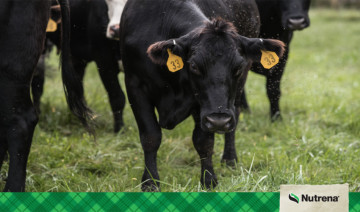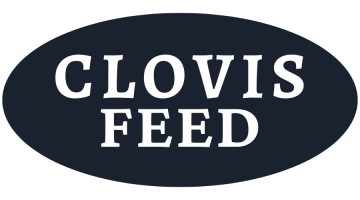
Keeping Cattle Parasite Free
Parasites have several negative effects on cattle health and productivity. They suppress appetite, negatively impact growth, damage gut lining and make cattle more susceptible to disease.
An Iowa State University study calculated a cost of up to $190 per animal resulting from the decreases in gain and reproduction in non-dewormed cattle.
Cattlemen should consider a deworming program to combat parasites as a critical part of a herd health plan. This allows cattle to reach their full genetic potential, increase intake, nutrient absorption, and improved overall health, growth and reproduction.
Before we get to some thoughts about a program, let’s talk about the parasite lifecycle. Knowing when to manage parasites is as important as knowing it itself.
Worms have three larval stages – L1, L2 and L3. During L1 and L2 stages, larva is immobile and will stay on the manure pat. Development and maturation depend on various conditions. In prime conditions, they can develop into infective larvae in days.
The L3 stage is the infective stage. Larva move away from the manure pat with moisture and have an external covering that protects them from the environment but inhibits nutrient consumption. At this stage, the larvae are searching for a host.
The parasite lifecycle is cyclical. The time from ingestion to adult will vary depending on the host animal’s age.
-
Calves – 2 to 4 weeks
-
Stockers or Replacement heifers – 4 to 5 weeks
-
Mature Cows – 6 to 8 weeks
It’s important to work with your veterinarian and nutritionist to set up a deworming program that fits your needs. Most deworming programs will start in the fall and winter; you will want to deworm your cow herd after a killing frost when temperatures are below 50°F for an extended period. It is also a best practice to deworm any incoming cattle from outside your operation.
Many cows get dewormed at pregnancy check, which may not be the best time. Temperatures are usually above 50°F and there has not been a killing frost, so when they go back on grass, they will get re-infected. Optimally, these cows will be dewormed at the right time so they can come through the winter parasite free. Deworm bulls on the same schedule as cows.
When cattle are not fighting off the burden of worms and parasites, they are healthier overall. When cattle are healthy, they require fewer resources and return more profitability.
The feed room is proudly brought to you by Nutrena and Cargill Animal Nutrition. Learn more about us here. You can see the original blog post here.
